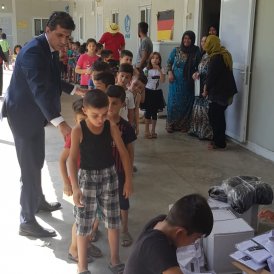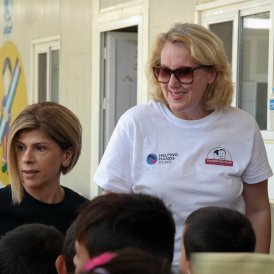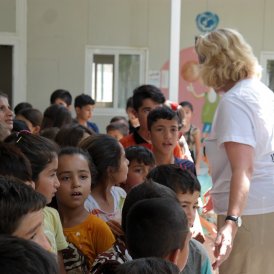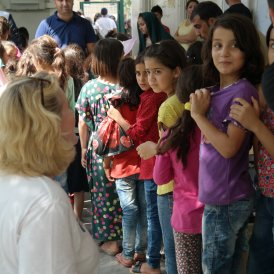WE HELP YOU FACE GLOBAL EMERGENCIES
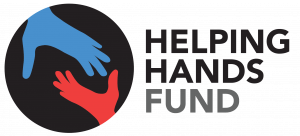
What is the Helping Hands Fund?
The International Observatory of Human Rights has launched the Helping Hands Fund to support: victims of oppression, refugees, and people facing grave human rights violations.
IOHR will provide modest funds to help assist with legal fees, emergency support for refugees in transit and repatriation of individuals recently released from prison.
Please download and fill out the Status Application and include a description of your emergency and the details of your situation.
All applications will be reviewed, and only selected applicants will be interviewed. Our decision making is expedited and governed by lawyers affiliated with IOHR and the Staff Team.
The first donation of the Helping Hands Fund supports: The Kurdi Foundation to deliver school supplies to refugee children in Iraq.
IOHR launched The Helping Hands Fund to support those most in need. The first donation of CAN$5000 was given to The Kurdi Foundation to ensure that children who have been forced to flee the devastation in Syria receive educational support in the refugee camps in Iraq.
IOHR decided to act swiftly to use the fund’s donation to ensure that children starting at school in refugee camps have the best opportunities in their new school year. IOHR arranged a trip to Erbil in Iraqi Kurdistan with Tima Kurdi to meet with her brother, Abdullah who is the co-founder of The Kurdi Foundation.
Abdullah lost his wife Rehanna and two sons Ghalib and Alan when they drowned at sea after an abortive attempt to reach a better life in Europe. Alan Kurdi’s little corpse became the focus of the world photographed on a beach in Turkey 3 years ago on the 2 September 2015. On the anniversary of their loss, IOHR travelled with Tima and Abdullah Kurdi to the Gwailan refugee camp in Iraqi Kurdistan to deliver school supplies to children going to school for the first time. These refugees would have been the same age as Abdullah’s sons Alan and Ghalib Kurdi.
Valerie Peay, Director of IOHR, travelled to Erbil to join Tima and her brother. The first task was to source children’s uniforms directly from the local market to ensure investment was going to the Erbil community who support a hundred and twenty thousand Syrian refugees in this small area. These camps are not as high profile as many in Turkey and Jordan but the local Kurdistan Regional Government has been firm in their support and in keeping the borders open to refugees; unlike several European countries.
IOHR sought to support the next generation of Syrian children through educational support from the Helping Hands fund in partnership with The Kurdi Foundation. The generation is growing with 7641 new born children registered by refugees living in Kurdistan In 2017. Although there were 42,000 children attending school last year, 40% of refugee children were not enrolled. The Kurdistan Regional Government (KRG) has funded 116 university scholarships however there is the need to support as many young adults into further education as possible so that they have a future beyond camps, whether back in Syria or resettled in other countries.
IOHR visited Gawilan camp in the desert of the Duhok region about 90 minutes’ drive to the north west of Erbil and about 140Km from Duhok. The KRG government provided a government car and officer to take us through the security check points, across the Euphrates river bridge that used to be ISIS held and on to the remote desert location of the camp. Due to its location, there is a curfew for camp residents from 6pm to 6am for their security.
8607 individuals were registered in Gawilan camp in 2017 making up 1972 households. Approximately 9.4% of the Kurdistan refugee population. The camp was opened in March 2013 and covers 750,000m². It has concrete slab plots for 1264 dwellings with the capacity to expand to another 1264 plots in the event of an influx of new refugees. Each dwelling is made from a concrete slab, a concrete block wall and a sandwich panel roof with a kitchen and latrine with rudimentary shower. Residents say it gets very cold in winter- temperatures drop to 9 degrees centigrade in winter and are currently 42 degrees centigrade. It is better than the original tented town with roads and infrastructure but access to electricity and fresh water can be intermittent.
The camp has 3 schools with 58% of children in the camp registered to attend, but class sizes are over 40 students to a class rather than the local average of 25. Those children that do not go to school go to work to help raise an income for their families. Children as young as twelve work on a local construction site and others travel into the cities to try and make ends meet. Over 6000 residents receive food assistance to feed their families but there are green shoots of hope with fledgling greenhouse projects being developed at the camp to grow vegetables to supply the local residents
IOHR visited a local school that Tima and her brother Abdullah had previously visited to deliver aid. There was soon an excited group of children following the progress of the unloading of the truck bringing the uniforms.
The Helping Hands Fund was used to buy over 500 uniforms for boys and girls and some school bags at the request of the school principal who said,
“this is the way for all the children to feel the same. No matter rich or poor they can feel proud to be part of a school together- all the same with the same chances to learn.”
Teachers live at the camp too and several are funded by various NGOs but they speak of the lack of school books, the rainy roof and the problems of daily life for the children who do come to school. A key issue is language provision with limited Arabic provision and two very different local dialects spoken in Kurdistan. However they also speak of the desperate desire of the children to learn. The team spoke to Hadir, 9 years old who wants to go to Germany to study to become a dentist like his father or little Fatima who loved her new backpack and asked if little girls in the UK had lots of books to carry.
IOHR calls on the UK and other European countries to increase the number of refugees who are given resettlement. The UK government scheme currently comes to a conclusion in 2020 so IOHR also supports the #ExtendTheWelcome campaign to petition for the government to extend the scheme indefinately and give the next generation of Syrians the chance to learn while their homeland is rebuilt.
(All figures regarding camp information from UNHCR, 2018)


